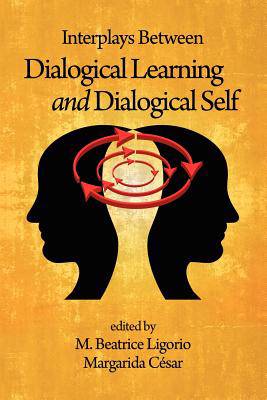
- Afhalen na 1 uur in een winkel met voorraad
- Gratis thuislevering in België vanaf € 30
- Ruim aanbod met 7 miljoen producten
- Afhalen na 1 uur in een winkel met voorraad
- Gratis thuislevering in België vanaf € 30
- Ruim aanbod met 7 miljoen producten
Interplays Between Dialogical Learning and Dialogical Self
Omschrijving
Education is a main issue in all countries. Policy makers, educators, families, students and, in a more general way, societies expect schools to provide a high quality education. They also expect students to be able to achieve and to become active and critical citizens. As senior researchers in education, we address some of the most complex and demanding research questions: How does learning affect identity? How does participation to educational settings, scenarios and situations impact the way we are or became? Can changes in how we perceive our Selves be considered as part of the learning process?
This book attempts to outline some answers to such broad questions using a very robust and updated theoretical frame: the dialogical approach. In these chapters very well-known international authors from different continents and countries analyze school and educational situations through new lens: by considering the teaching and learning processes as multi-voiced and socially complex and considering identity development as a true leverage for development.
The focus on the dialogical nature of both learning and identities makes this book interesting not only for educators and educational researchers but also for anyone interested in human sciences, policy makers, students and their families. We also aimed at producing a book that can be useful for different cultures and educational systems. Thus, in this book there are researches and comments from different cultural perspectives, making it appealing for a very large target-public.
Specificaties
Betrokkenen
- Uitgeverij:
Inhoud
- Aantal bladzijden:
- 512
- Taal:
- Engels
- Reeks:
Eigenschappen
- Productcode (EAN):
- 9781623960643
- Verschijningsdatum:
- 13/11/2012
- Uitvoering:
- Paperback
- Formaat:
- Trade paperback (VS)
- Afmetingen:
- 156 mm x 234 mm
- Gewicht:
- 707 g

Alleen bij Standaard Boekhandel
Beoordelingen
We publiceren alleen reviews die voldoen aan de voorwaarden voor reviews. Bekijk onze voorwaarden voor reviews.










